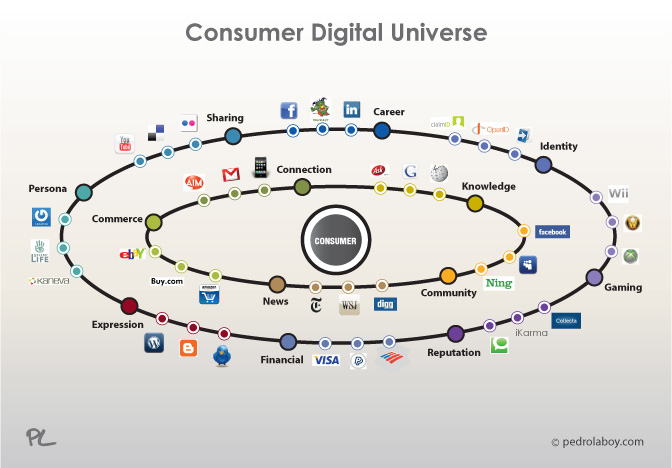As a follow-up to my earlier post about the fields of UX, technical communication, and content strategy, I’d like to add a forth up-and-coming field to the mix: digital marketing. Clearly a major part of the digital world, digital marketing is another field that anyone interested in technology and communication should consider.

Image source: http://bit.ly/1E8kDPK
According to Ad Age, U.S. advertisers’ spending on digital advertising will overtake TV spending in 2016. This trend coupled with the increased pervasiveness of mobile technologies and social media indicate that people will increasingly be looking for tailored, personalized content when they’re online.
Enter the role of the digital marketer. A role that is very different from that of the traditional marketer.
What Is Digital Marketing?
Digital marketing is a field that is centered on relationship-building through digital technologies: social media, mobile, and the web. Whereas traditional marketing was largely a one-to-many model, digital marketing involves managing relationships among technical experts such as web designers, managerial professionals such as product managers, and customers.
One of the most common roles of the digital marketer, for instance, is as the search expert. Millions of people search for web content on a daily basis on a large variety of platforms and devices. People use this content for education, entertainment, social interaction, and to help them make an informed decision when making a purchase.
Professionals who can tap into those millions of keystrokes and funnel even a small percentage of website traffic to a given destination (such as a webpage or mobile app), are thus highly valuable to nearly any organization.
What Are Skill Sets Specific to Digital Marketing?
Core Skill Sets
- You work effectively in messy, complex communication situations
- You have a strong desire to help other people
- You have a passion for effective communication, in any medium
- You’re not afraid to jump in and learn any digital technology out there
Field-Specific Skill Sets
- Search Engine Optimization (SEO) techniques like keyword research, website optimization, and conversion optimization
- Pay Per Click (PPC) advertising platforms such as Google Adwords and WordStream
- Social and website analytics platforms such a Google Analytics and Crazy Egg
- All-in-one marketing solutions such as Marketo and HubSpot
- Content marketing
- Highly effective written communication
- Social media (including integrated publishing technologies like Hootsuite and WordPress)
How Do I Get Started?
As I also mentioned in my earlier post, this is a more complicated question, but essentially: you learn.
In an upcoming post I will go into some of the ways you can learn about this field and others like it, find consultants like me to help your organization, and even launch a career in one of them.

Trackbacks/Pingbacks